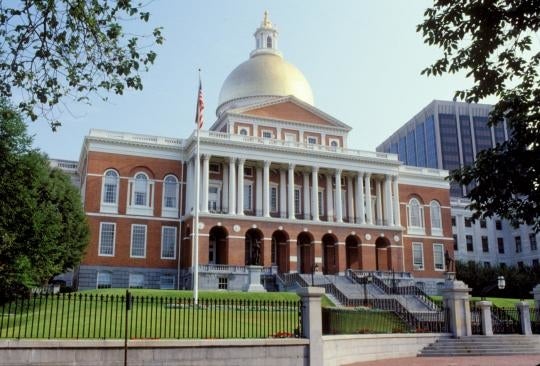Mass. treasury draws $500M from line of credit
 Photo | Courtesy of Commonwealth of Massachusetts
Massachusetts State House
Photo | Courtesy of Commonwealth of Massachusetts
Massachusetts State House
State officials have had enough cash on hand since the pandemic struck in mid-March to keep up with bill payments, including large monthly local aid payments, but are now dipping into a line of credit, just in case they run into problems.
State Treasury officials confirmed to the News Service that they are drawing down $500 million from a $1.75 billion line of credit established with a group of commercial banks to help manage cash flow, if necessary.
The move, according to First Deputy Treasurer James MacDonald, will help the state be prepared to manage the deferral of tax revenue associated with moving the tax filing deadline to July 15 and to "be ready for July."
The Treasury to date has not needed to use its short-term borrowing options to make local aid payments and other required payments. "It's a good story that we have a healthy cash position," MacDonald said.
The $500 billion stemming from the line of credit will "be a part of our pooled cash," he said, adding: "We don't know what's going to happen on July 15."
MacDonald agreed with the characterization of the drawdown as insurance against bumps in the state's cash flow.
"We want to be prepared to manage the deferred tax revenues as we navigate fiscal 2021, which starts Wednesday," he told the News Service on Monday night.
The line of credit was set up with a syndicate of commercial banks to help the Treasury manage cash flows during the pandemic, which triggered a sharp and unprecedented decline in tax collections and left an unclear picture of when revenues might bounce back.
The state has two other options available to facilitate cash flow, if necessary.
Under a law approved this spring, the Treasury may enter into short-term borrowing arrangements in anticipation of receiving revenues that are not available, as long as debts are repaid by June 30, 2021.
The state is also eligible to borrow up to $7.86 billion through a municipal liquidity facility that the Federal Reserve Bank announced on April 9 to ensure liquidity in states and large cities that may need help due to the pandemic's impacts and the postponement of the April 15 tax filing deadline.
The state's June 8 cash flow statement does not reflect the impact on estimated tax revenues as a result of the extended tax filing and payment deadline, and cautions that while cash balances "will change materially for the projected periods," the state "cannot predict at this time the extent or duration of any such impact."
The Treasury on Tuesday is delivering big monthly local aid payment to cities and towns, and state officials have advised municipalities that local aid payments in July and August will be level-funded, or paid at the same levels as fiscal 2020.
Gov. Charlie Baker and the Democrat-controlled Legislature last year agreed to a landmark law aimed at driving $1.5 billion in new revenues into K-12 public education over seven years, starting in fiscal 2021. The fate of those payments hinges on fiscal 2021 budget deliberations that have yet to begin due to the pandemic.
The House and Senate at this time of year are usually wrapping up details of an annual budget but Gov. Charlie Baker's $44.6 billion fiscal 2021 budget, filed in January, remains before the House Ways and Means Committee.
Chairman Aaron Michlewitz said the committee won't meet a July 1 deadline established under temporary, emergency House rules to offer a fiscal 2021 budget. Budget officials are waiting to see how tax collections look after the July 15 filing deadline and awaiting word on additional relief from the federal government.
The governor's budget was based on a tax revenue estimate of $31.15 billion, but experts say that will need to come down by billions of dollars due to the pandemic-induced recession and its continuing impacts.
The state is operating on a $5.25 billion interim fiscal 2021 budget that officials say will provide enough funding for operations in July. Administration and Finance Secretary Michael Heffernan has said there could be more than one interim budget before an annual budget is agreed upon.
According to the Massachusetts Taxpayers Foundation, the difference between Baker's fiscal 2021 budget and the fiscal 2020 state budget is about $1.5 billion. If fiscal 2020 spending levels continued for all of fiscal 2021 the reduction would represent about 25 percent of an estimated $6 billion shortfall. The big reductions would be in education ($484 million), health and human services ($498 million), and transportation ($155 million).
"These lower appropriation levels address the need for continuing government operations while adjusting for lower tax revenue collections, but even this reduced spending could prove to be overly optimistic should federal assistance levels fall short, the economic recovery is delayed or circumstances otherwise further decline," the taxpayers foundation wrote in a report released Tuesday afternoon.









0 Comments